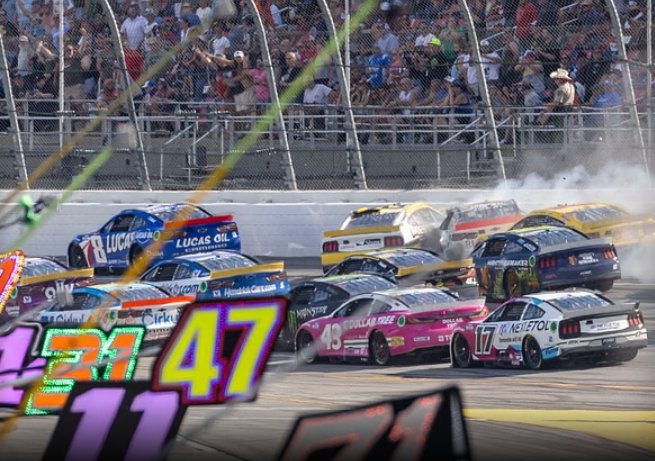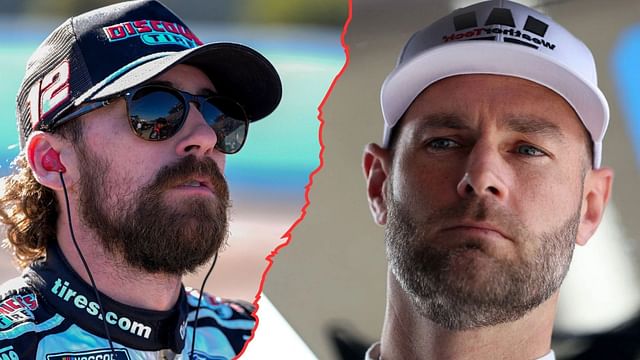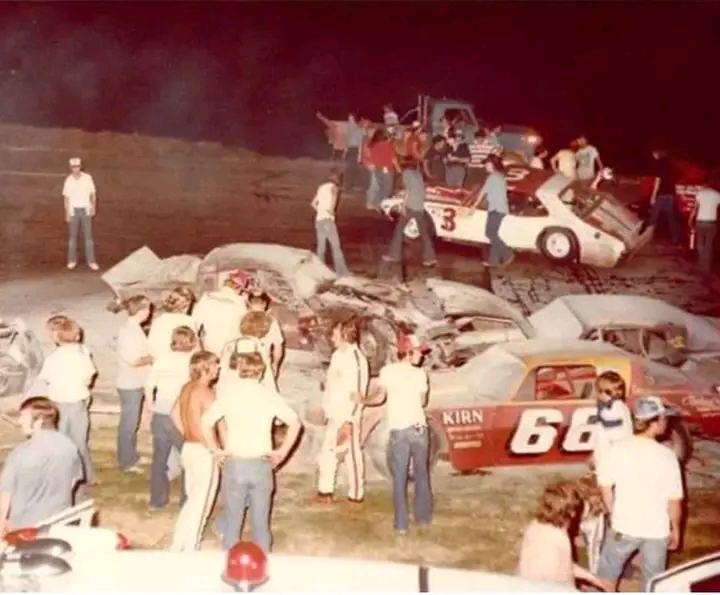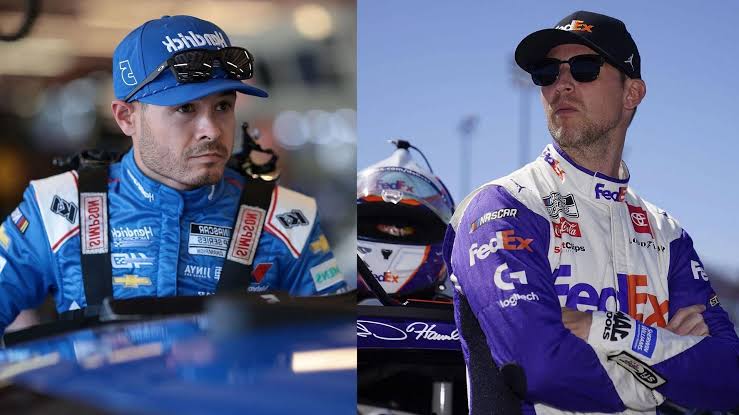The YellaWood 500 at Talladega Superspeedway on October 6, 2024, ended in chaos, leaving fans and drivers alike questioning the integrity of NASCAR’s rules. With only five laps remaining, a massive wreck erupted, triggered by Austin Cindric after Brad Keselowski made contact. This crash involved an astonishing 28 cars, including eight playoff contenders, igniting heated debates in the motorsport community over potential rule violations.
In a recent episode of his podcast, *Actions Detrimental*, Denny Hamlin of Joe Gibbs Racing raised serious allegations against NASCAR, claiming they failed to enforce their own rules during this chaotic race. Meanwhile, *Dirty Mo Media* aired discussions featuring Jeff Gluck, who brought attention to certain exceptions made for drivers Chase Elliott and Chase Briscoe. However, Hamlin’s focus centered on Ricky Stenhouse Jr.’s victory, which he argued came in violation of NASCAR’s guidelines. He pointed out that Stenhouse’s car sustained damage during the crash, with a significant hole left in the left door after the foam was removed.
Hamlin referenced Section 3337 of the Cup Series rulebook, which states that energy-absorbing foam must be intact on both sides of the car. Any damaged foam must be replaced immediately. He juxtaposed this with the case of Josh Berry, who was disqualified for missing bolts on his windshield. In contrast, both Brad Keselowski and Chris Buescher, who also had missing roof rails, were allowed to continue racing without penalty. This inconsistency raises questions about NASCAR’s enforcement of its regulations.
Furthermore, Jeff Gluck discussed the new DVP (Damage Vehicle Policy) during a video conference, emphasizing that the rule mandates a driver unable to return to the pits must receive a DNF. At Talladega, however, this rule was seemingly ignored, allowing numerous drivers to make repairs and rejoin the race. Gluck cited former NASCAR driver Elton Sawyer, who mentioned that the policy was never intended to eliminate competitive cars from the race, indicating a shift in how the rules are applied.
This situation could have significant ramifications for the results of the YellaWood 500. If NASCAR decides to take action regarding the infractions observed during the race, it could lead to a complete overhaul of the race outcomes, reshaping the playoff landscape. The fallout from Talladega could prompt NASCAR to reevaluate its policies and ensure fair enforcement across the board, reinforcing the integrity of the sport. As discussions continue, fans and competitors alike are eager to see how NASCAR will respond to these allegations and what changes may lie ahead.
Did NASCAR Break Its Own Rules at Talladega? Investigating the community’s reactions to officials allegedly overstepping their bounds.




